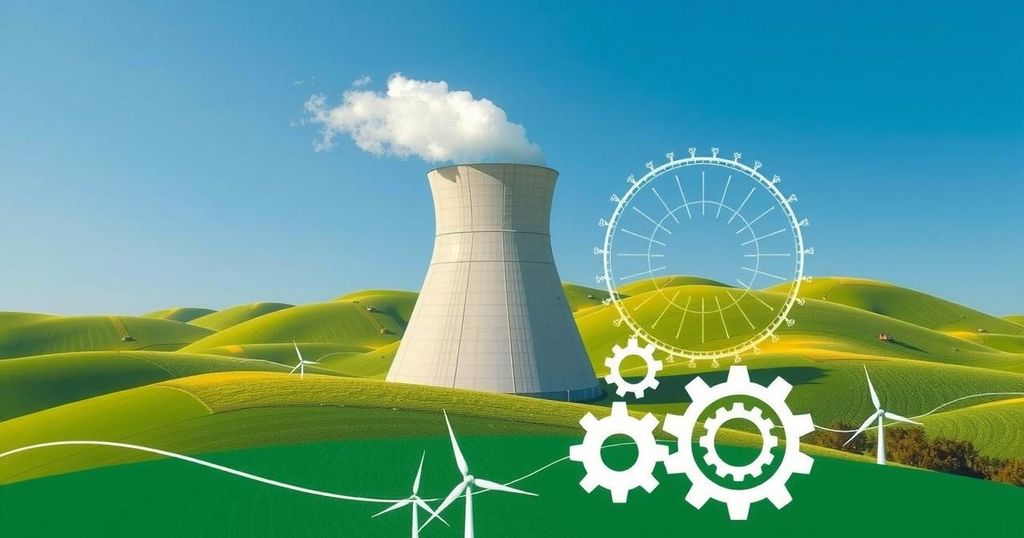South Africa is exploring bids from Russia and Iran to increase its nuclear energy capacity, as stated by Minister Gwede Mantashe. This move may strain relations with the U.S., complicating efforts to renew a vital nuclear agreement following allegations regarding South Africa’s ties with Iran. The government highlights the need for expanded nuclear capacity to address power shortages and reduce emissions.
South Africa is considering proposals from Russia and Iran to expand its civilian nuclear power capabilities, as stated by Gwede Mantashe, Minister of Mineral and Petroleum Resources. Analysts suggest that this approach may exacerbate tensions with the United States and hinder the renewal of a strategic nuclear agreement. The country, which operates the continent’s sole nuclear plant, Koeberg, aims to add 2,500 megawatts of capacity to address chronic electricity outages and enhance its environmental performance.
Minister Mantashe emphasized that excluding any bidders from offers is not a viable option. He stated, “We can’t have a contract that says Iran or Russia must not bid, we can’t have that condition. If they are the best in terms of the offer on the table, we’ll take any (country).” This statement comes amid increased scrutiny from Washington, particularly following President Trump’s recent executive order that halted aid to South Africa, accusing it of rekindling relations with Iran without substantiating evidence.
Despite the concerns raised by the U.S., the South African government clarified that no cooperation with Iran exists regarding nuclear power or related technologies. Ongoing delays in finalizing a tender for nuclear projects—originally scheduled for last year—are a result of legal challenges from the opposition Democratic Alliance party, which is now part of the coalition government. Negotiations surrounding a new civilian nuclear pact, known as a Section 123 Agreement with the United States, have been ongoing for almost a decade.
The previous agreement expired in December 2022, and while technical discussions have been concluded, formal signing remains pending due to incomplete legal processes on both sides. Analysts caution that failure to secure a new agreement could prevent South Africa’s power utility, Eskom, from obtaining reactor fuel from Westinghouse for Koeberg’s Unit 1, with Unit 2 currently supplied by Framatome from France.
Additionally, obstacles may arise for U.S. companies like TerraPower, backed by Bill Gates, and ASP Isotopes, seeking to invest in South Africa amid a growing nuclear renaissance. The complexities introduced by the executive order could further complicate discussions between Pretoria and Washington related to nuclear energy enhancements.
In summary, South Africa is open to nuclear bids from Russia and Iran, despite potential repercussions with the United States. Minister Mantashe advocates for evaluating bids based solely on merit, while the U.S. has expressed concerns amid ongoing negotiations for a critical nuclear agreement. The outcome of these developments could significantly impact South Africa’s energy strategy and its international partnerships.
Original Source: www.usnews.com






